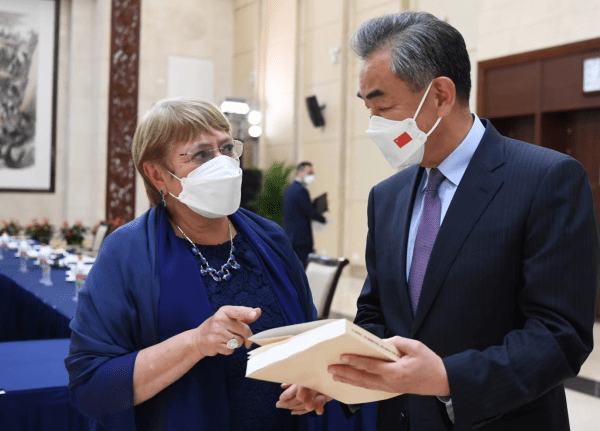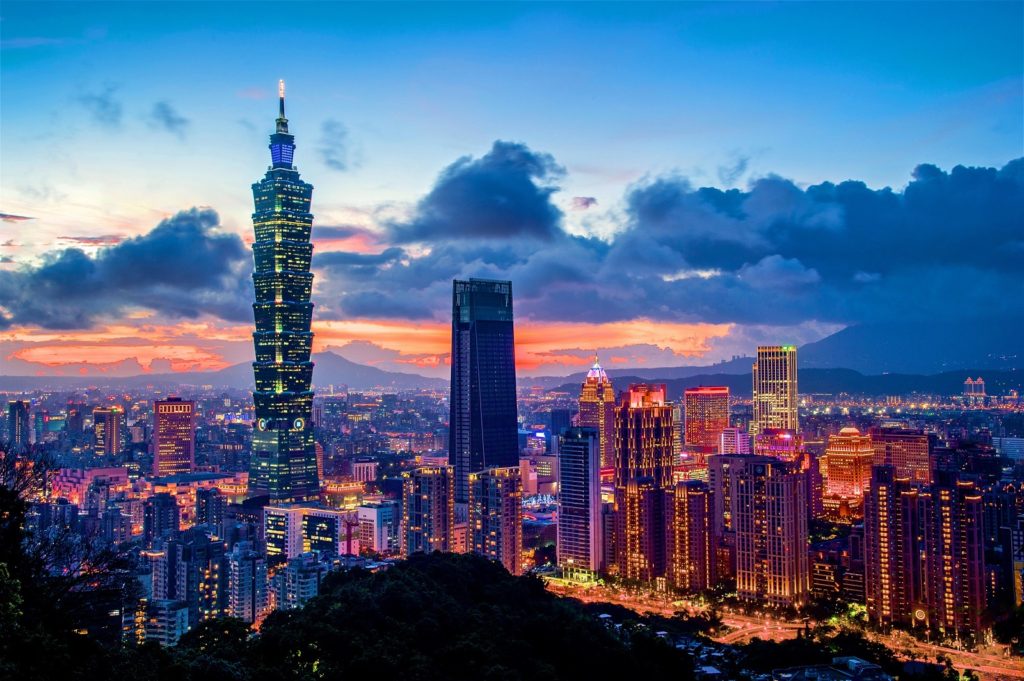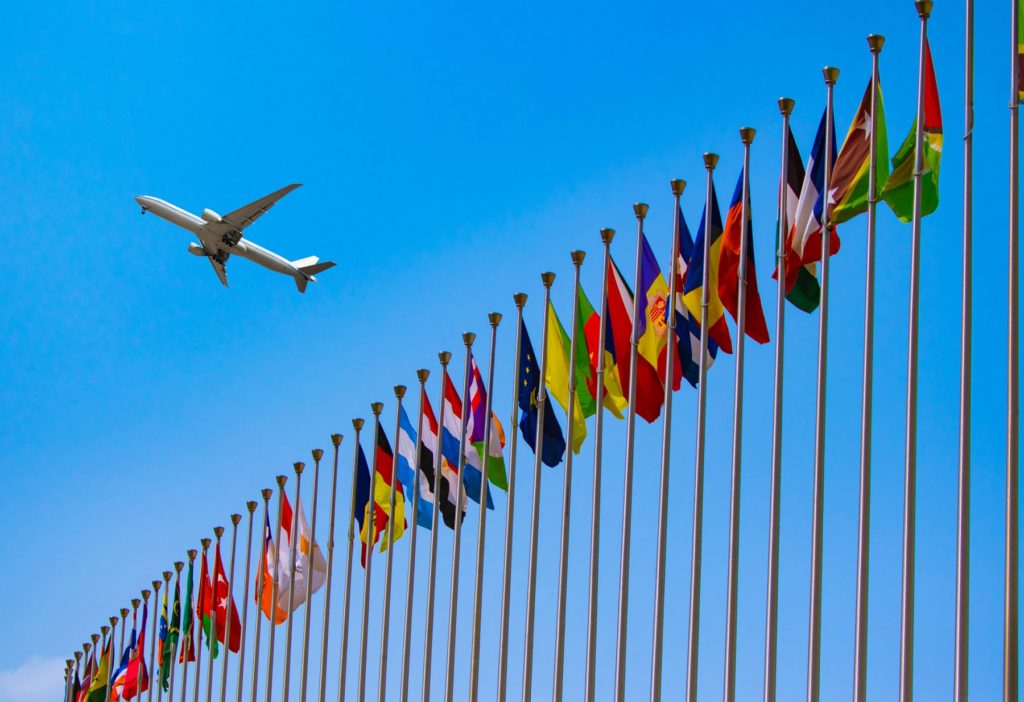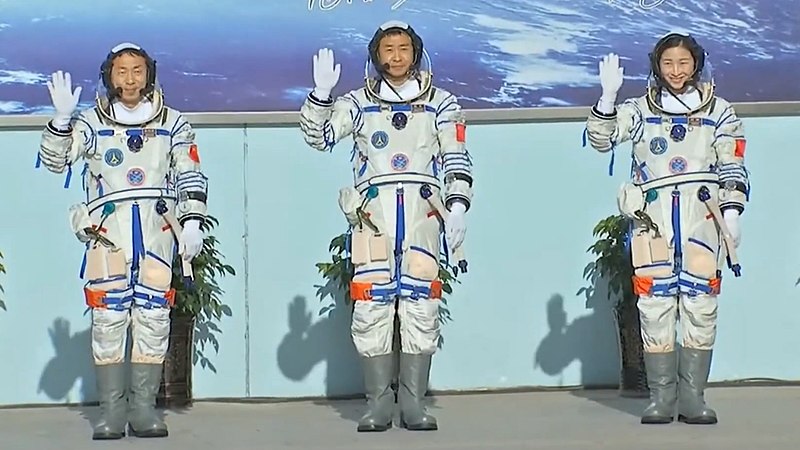
ICAS Bulletin (online ISSN 2836-3418, print ISSN 2836-340X) is published every other week throughout the year at 1919 M St NW, Suite 310, Washington, DC 20036.
The online version of ICAS Bulletin can be found at chinaus-icas.org/bulletins/.

– U.S. Defense Secretary Lloyd Austin and Chinese Defense Minister Wei Fenghe announced travel plans to the Shangri-La Dialogue in Singapore on June 7. Wei Fenghe had reportedly requested a meeting with Sec. Austin, but the details are yet to be determined.
– China’s Foreign Ministry Spokesman Zhao Lijian condemned the joint statement made by the leaders of the United States and New Zealand concerning human rights violations in Xinjiang and the erosion of freedoms in Hong Kong to interfere in internal affairs.
– On May 31, New Zealand Prime Minister Jacinda Ardern and U.S. President Joe Biden committed to forging stronger military ties in response to the security pact between China and the Solomon Islands, countering rising security threats posed by China in the Pacific region.
– Chinese Foreign Minister Wang Yi accused Washington of disrupting peace in the Taiwan Strait, warning a cold war mentality would push the two countries into further confrontation.
– On May 26, U.S. Secretary of State Antony Blinken claimed to defend international rules instead of blocking China from growing its economy in a speech, emphasizing the need to invest in national strength, align with Indo-Pacific and NATO partners, and to compete in tech and economics.
Associated News Sources:
“Trip to Indo-Pacific Allows Austin to Continue Outreach”, U.S. Department of Defense, June 6
“China slams Biden, Ardern comments on Xinjiang, Hong Kong, Taiwan”, Reuters, June 1 [Paywall]
“Biden and New Zealand leader air shared concern about China’s Pacific ambitions”, Reuters, May 31 [Paywall]
“US’s China strategy a path to confrontation, Beijing warns”, South China Morning Post, May 31 [Paywall]
“China and the U.S. Are Arranging an In-Person Meeting Between Heads of Defense”, The Wall Street Journal, May 30 [Paywall]
“China strategy is about rules-based order, not ‘new Cold War,’ Blinken says”, Reuters, May 27 [Paywall]

– On May 28, UN High Commissioner Michelle Bachelet defended her six-day visit to China as not an investigation and urged China to review its Xinjiang policies to ensure compliance with international human rights standards, as well as to provide overseas Uyghurs with information about relatives in China to boost transparency. The trip was accused by Western officials and human-rights groups of giving Beijing political cover for its abuses.
– On May 25, Chinese President Xi Jinping stated that China’s development of human rights “suits its own national conditions” and does not need “patronizing” lectures during a video conference with Michelle Bachelet, who considered it to be a “valuable” opportunity to speak directly with government officials. This trip was the first to China by a UN human rights commissioner in 17 years and has been confined to a “closed-loop bubble” with no foreign media allowed to prevent the spread of the Covid-19 virus.
– On May 24, the U.S. State Department Spokesperson Ned Price claimed the visit by Michelle Bachelet to be a “mistake” without necessary access to conduct an “unmanipulated assessment” of the human rights environment in Xinjiang.
Associated News Sources:
“U.N. Human-Rights Chief Calls on China, Gently, to Boost Transparency in Xinjiang”, The Wall Street Journal, May 28 [Paywall]
“‘Escalation of Secrecy’: Global Brands Seek Clarity on Xinjiang”, The New York Times, May 27 [Paywall]
“Xi Jinping tells UN human rights chief Michelle Bachelet China doesn’t need ‘patronising’ lectures about its record”, South China Morning Post, May 25 [Paywall]
“UN rights chief speaks with Xi amid criticism of China trip”, Reuters, May 25 [Paywall]
“Biden ‘Appalled’ by New Images of Xinjiang Camps, Calls UN Chief’s Visit a Mistake”, Bloomberg, May 24 [Paywall]

– On June 5, U.S. Commerce Secretary Gina Raimondo confirmed the Biden Administration’s efforts to combat high inflation by lifting some tariffs on China. Steel and aluminum tariffs remain to protect domestic production.
– From June 3, all U.S. citizens and entities will be forbidden to invest in Chinese companies identified as having military ties.
– U.S. Customs officials confirmed readiness to implement a ban on imports from Xinjiang following the Uyghur Forced Labor Prevention Act, to safeguard the domestic market from products potentially tainted by human rights abuses. The law is expected to take effect on June 21.
– On June 1, Chinese Foreign Ministry spokesman Zhao Lijian condemned the U.S. for imposing supply chain sanctions on China, undermining the legitimate rights and interests of Chinese companies.
– U.S. Deputy Treasury Secretary Wally Adeyemo expressed the Biden administration’s willingness to cut the Section 301 tariffs on Chinese goods sustainably.
Associated News Sources:
“U.S. mulls lifting some China tariffs to fight inflation”, Reuters, June 6 [Paywall]
“All options on table in China tariff review, U.S. trade official says”, Reuters, June 2 [Paywall]
“China softens blow of U.S. sanctions on military companies”, Nikkei Asia, June 2 [Paywall]
“US Crackdown on Forced Labor in China Risks Further Supply Chaos”, Bloomberg, June 2 [Paywall]
“Beijing Says US Supply Chain Curbs Sabotage China’s Development”, Bloomberg, June 1 [Paywall]
“Biden considering move on Chinese goods tariffs-Treasury’s Adeyemo”, Reuters, May 31 [Paywall]

– On June 3, the State Department Spokesperson, Ned Price, said the Taiwan fact sheet was updated to clarify the U.S. position of not supporting formal independence for Taiwan; however, the policy would remain unchanged.
– On June 2, Deputy U.S. Trade Representative Sarah Bianchi claimed trade talks with Taiwan to move more quickly than broader talks with 12 Indo-Pacific countries in the Indo-Pacific Economic Framework.
– On June 2, China’s Foreign Ministry Spokesman Zhao Lijian accused Washington of jeopardizing peace and demanded to “stop negotiating agreements with Taiwan that have sovereign connotations and official nature.”
– On June 1, U.S. Defense Secretary Lloyd Austin indicated a willingness to expand arms aid and military training for Taiwan in response to China’s growing threat, expressing concerns for stability in the Indo-Pacific region.
– On June 1, Sarah Bianchi and Taiwan Minister-Without-Portfolio John Deng announced the launch of the U.S.-Taiwan Initiative on 21st-Century Trade, aiming to deepen the economic and trade relationship.
– On May 25, China’s PLA’s Eastern Theater Command Shi Yi announced a joint naval and air drill near Taiwan, sending a “solemn warning” against President Biden’s earlier commitment to defend the island.
Associated News Sources:
“U.S. updates Taiwan fact sheet again to say it does not support independence”, Reuters, June 3 [Paywall]
“U.S.-Taiwan trade talks could outpace Indo-Pacific effort, USTR official says”, Reuters, June 3 [Paywall]
“China demands US stop trade talks with Taiwan”, AP News, June 2
“U.S. willing to expand military aid to Taiwan: defense secretary”, Nikkei Asia, June 1 [Paywall]
“United States and Taiwan Announce the Launch of the U.S.-Taiwan Initiative on 21st-Century Trade”, Office of the United States Trade Representative, June 1
“China military drill ‘a warning’ to Taiwan in wake of Biden defence pledge”, South China Morning Post, May 25 [Paywall]

– On May 30, Pacific countries declined to sign up to a sweeping regional economic and security deal proposed by China, after a virtual summit in Fiji among Pacific foreign ministers and their Chinese counterpart Wang Yi.
– On May 25, the China Securities Regulatory Commission said that China and the U.S. are committed to reaching an arrangement on the audit inspection issue, in response to the U.S. Securities and Exchange Commission.
– Chinese Foreign Minister Wang Yi started working on a draft of the agreement with 10 small Pacific nations to collaborate on “traditional and non-traditional security”, expand law enforcement cooperation, and to jointly develop a marine plan for fisheries.
– On May 19, Chinese President Xi Jinping urged BRIC member states to join the Global Security Initiative and oppose hegemonism during a video address, as part of an effort to counter the recent U.S. diplomatic moves.
Associated News Sources:
“China, Pacific islands unable to agree on security pact”, CNN, May 30
“China’s foreign minister tells Pacific leaders ‘don’t be too anxious’ after they reject regional security pact”, The Guardian, May 30
“China seeks Pacific islands policing, security cooperation -document”, Reuters, May 25 [Paywall]
“China wants 10 Pacific nations to endorse sweeping agreement”, The Seattle Times, May 25
“President Xi Jinping Delivers a Video Address At the Opening Session of the BRICS Foreign Ministers’ Meeting”, Ministry of Foreign Affairs of the People’s Republic of China, May 19

“China secretly building PLA naval facility in Cambodia, Western officials say”, The Washington Post, June 6
“China launches mission to complete space station assembly”, AP News, June 5
“China’s international school sector threatened by Covid and crackdown”, Financial Times, June 4 [Paywall]
“Hong Kong Police Quash Vigil to Mark Tiananmen Square Massacre”, The Wall Street Journal, June 4 [Paywall]
“China and Australia’s dueling Pacific tours make final stops”, AP News, June 3
“China Nears Launch of Advanced Aircraft Carrier, Satellite Images Show”, The Wall Street Journal, June 2 [Paywall]
“China Warns New Zealand Against Squandering Trade Ties”, The Wall Street Journal, June 2 [Paywall]
“Amazon to pull Kindle out of China, other businesses to remain”, Reuters, June 2 [Paywall]
“Math books outrage China with ‘ugly, sexually suggestive, pro-American’ images”, CNN, May 31
“Fiji joins US-led Indo-Pacific economic initiative on eve of Chinese visit”, Financial Times, May 26 [Paywall]
by Sourabh Gupta
May 13, 2022
Key Takeaways:
by Matt Geraci and Yilun Zhang
May 26, 2022
Key Takeaways:
by Nong Hong
May 31, 2022
US Secretary of State Antony Blinken made his long-delayed policy speech last Thursday, outlining America’s China policy by describing Beijing as “the most serious long-term challenge to the international order”. This followed a wider effort to calm Beijing over President Joe Biden’s comment that the United States would be willing to use force to defend Taiwan against attack, and is the latest move in the administration’s months-long campaign to counter China. It seems to signal that deteriorating US-China relations will not improve any time soon.
The Biden administration has had a busy global agenda this month. Washington hosted Asean leaders for a special summit, then Biden travelled to South Korea and Japan for bilateral meetings, attended the second Quadrilateral Security Dialogue summit, and announced that 12 countries were joining America’s Indo-Pacific Economic Framework – a new pillar in the strategy to counter Beijing.

On Friday, May 27, 2022, Senior Fellow Sourabh Gupta discussed U.S.-China relations regarding Taiwan on Alhurra TV.
On Friday, May 27, 2022, Senior Fellow Sourabh Gupta was quoted by China Daily about Secretary Blinken’s China policy speech.
On Friday, May 27, 2022, Research Associate Yilun Zhang was interviewed by PressTV on the United States’ Taiwan policy.
On Friday, May 27, 2022, ICAS TnT hybrid event on the Indo-Pacific Economic Framework was highlighted by ChinaDaily.

The Institute for China-America Studies is an independent nonprofit, nonpartisan research organization dedicated to strengthening the understanding of U.S.-China relations through expert analysis and practical policy solutions.
1919 M St. NW Suite 310,
Washington, DC 20036
icas@chinaus-icas.org
(202) 968-0595
© 2025 INSTITUTE FOR CHINA-AMERICA STUDIES. ALL RIGHTS RESERVED.